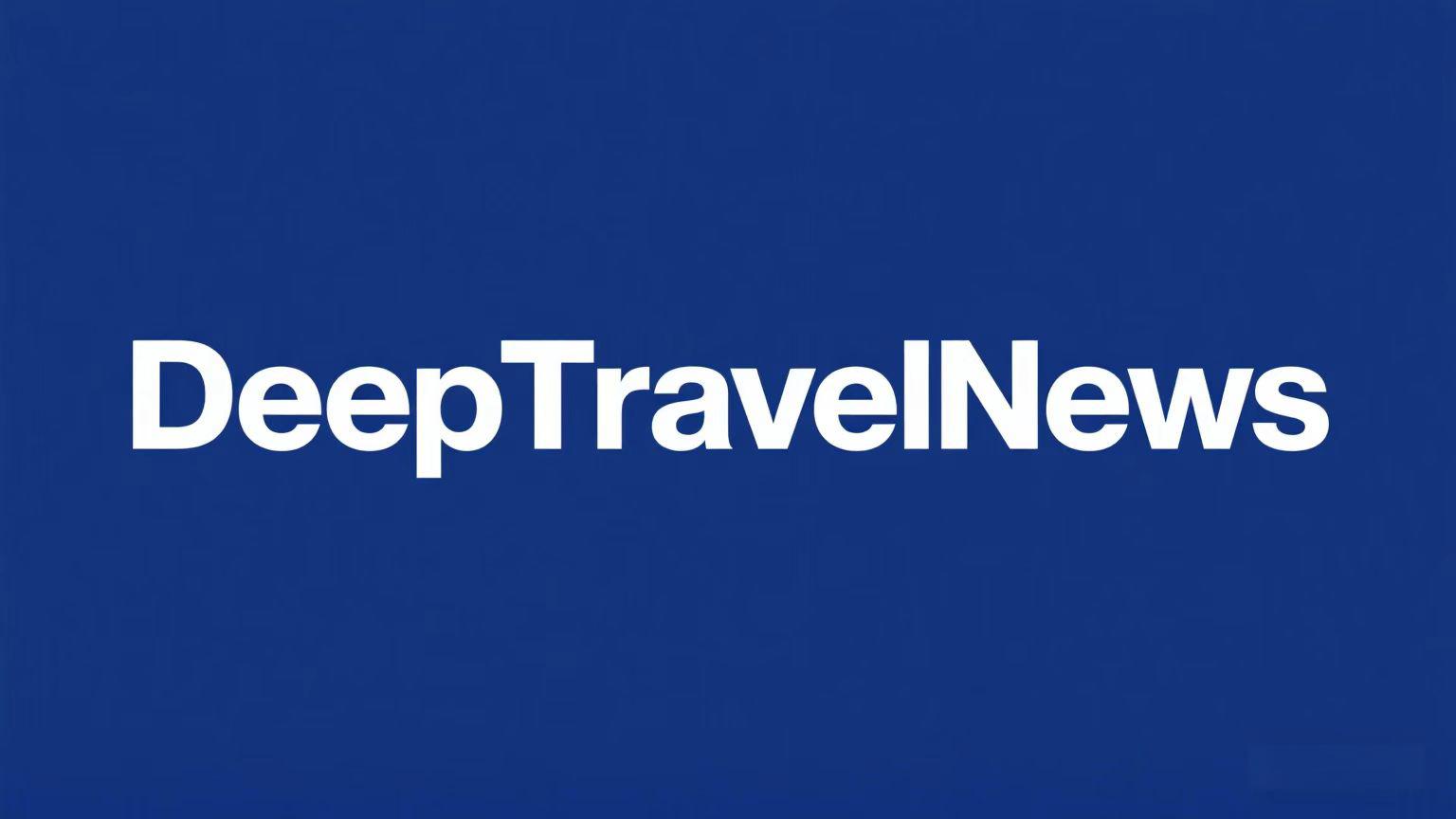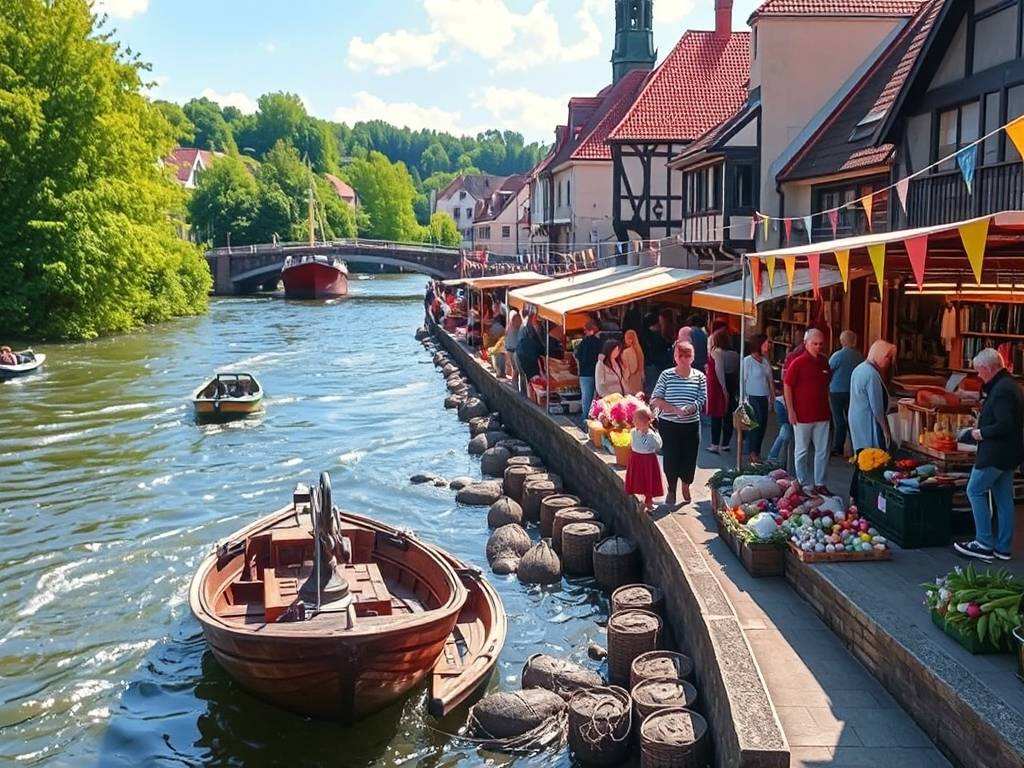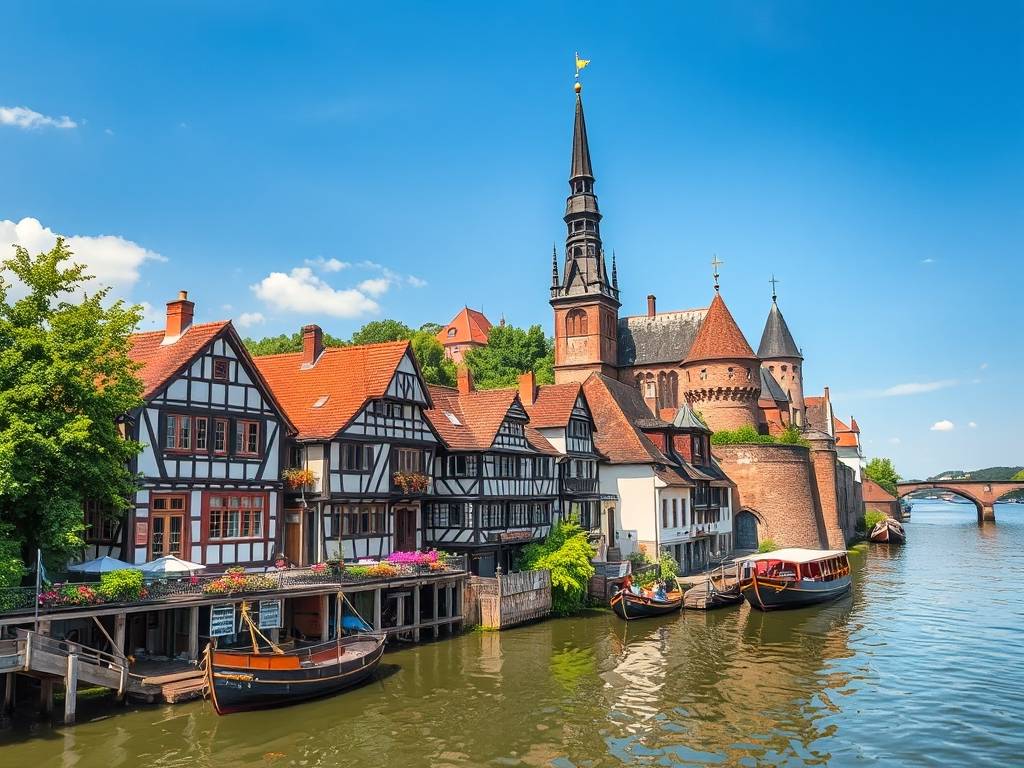Global Travel Information
Elbe River Language Tips: Basic German Phrases for Travelers
Navigating the Elbe: Your Essential Guide to Basic German Phrases for a Smooth Journey
So, you're planning a trip along the magnificent Elbe River! From the vibrant cityscape of Dresden, often called "Florence on the Elbe," to the timeless charm of towns like Meissen and the stunning sandstone landscapes of Saxon Switzerland, your journey promises to be unforgettable. But before you set sail or drive along its scenic banks, let's talk about a key that will unlock a deeper, more authentic experience: the German language.
You might be thinking, "But everyone speaks English, right?" While it's true that you can often get by with English, especially in tourist hubs, venturing beyond the main attractions reveals a different story. A simple "Guten Tag" (Good day) or "Danke" (Thank you) can transform your interactions. It’s a sign of respect, a bridge to local culture, and your secret weapon for discovering hidden gems. This guide is designed to be your friendly companion, providing you with all the essential German phrases for travelers you'll need, organized to solve your potential problems from the moment you arrive until you sadly say "Auf Wiedersehen" (Goodbye).
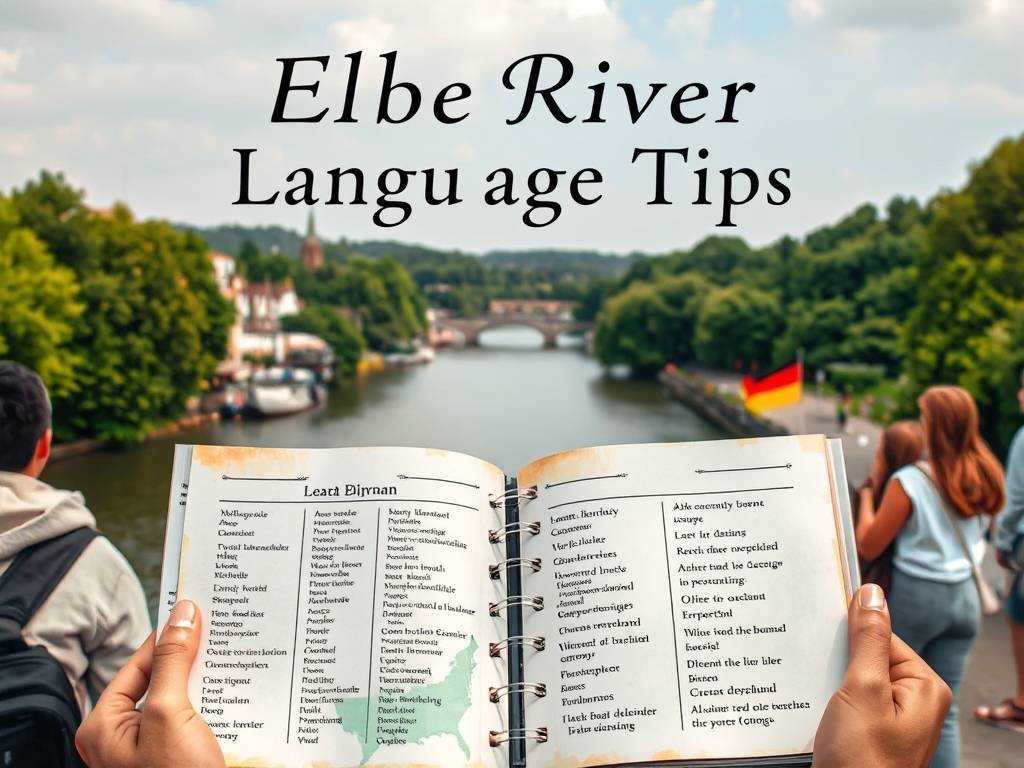
Your Foundation: The Greetings and Polite Essentials
First impressions matter. Starting an interaction with a German greeting sets a positive tone for the entire exchange.
- Guten Morgen (Goo-ten Mor-gen) - Good morning (used until about noon).
- Guten Tag (Goo-ten Tahk) - Good day (the standard greeting from noon until early evening).
- Guten Abend (Goo-ten Ah-bent) - Good evening.
- Hallo (Hah-loh) - Hello (universal and friendly).
- Auf Wiedersehen (Owf Vee-der-zayn) - Goodbye (formal).
- Tschüss (Chüss) - Bye (casual and very common).
Now, for the magic words:
- Bitte (Bit-tuh) - This is a powerhouse word! It means "Please," "You're welcome," and is also used when offering something, like a waiter handing you your food.
- Danke (Dahn-kuh) - Thank you. For extra emphasis, "Danke schön" (Dahn-kuh shurn) means "Thank you very much."
- Entschuldigung (Ent-shool-di-goong) - This means both "Excuse me" (to get someone's attention or when bumping into someone) and "I'm sorry."
- Ja (Yah) and Nein (Nine) - Yes and No.
Mastering the Art of Getting Around: Transportation Phrases
Navigating train stations, buying bus tickets, or asking for directions can be daunting. Arm yourself with these phrases.
- Wo ist...? (Voh ist...) - Where is...? This is your most important question.
- ...der Bahnhof? (dehr Bahn-hohf) - ...the train station?
- ...die Haltestelle? (dee Hahl-tuh-shtel-luh) - ...the bus stop?
- ...eine Toilette? (eye-nuh Toy-let-tuh) - ...a toilet?
- ...der Hafen? (dehr Hah-fen) - ...the harbor? (Very useful for Elbe river cruises!).
When at a ticket counter:
- Eine Fahrkarte nach [Dresden], bitte. (Eye-nuh Fahr-kar-tuh nahkh [Dresden], bit-tuh) - One ticket to [Dresden], please.
- Einfach oder hin und zurück? (Eye-n-fakh oh-der hin oont tsu-rük) - One-way or round trip?
- Hin und zurück, bitte. (Hin oont tsu-rük, bit-tuh) - Round trip, please.
- Wie viel kostet das? (Vee feel kostet dahs) - How much does it cost?
- Welcher Gleis fährt nach Leipzig? (Vel-sher Glice fairt nahkh Liep-tsikh) - Which platform goes to Leipzig?
On the train or boat, you might need to ask:
- Ist dieser Platz frei? (Ist dee-zer Plahts fry) - Is this seat free?
Savoring the Flavor: Ordering Food and Drink Like a Local
Dining in a German Gasthaus (inn) or a Dresden café is a highlight. Don't just point at the menu—engage with it!
- Die Speisekarte, bitte. (Dee Shpy-ze-kar-tuh, bit-tuh) - The menu, please.
- Was empfehlen Sie? (Vahs emp-fay-len zee) - What do you recommend? (A fantastic question that servers love).
- Ich hätte gern... (Ikh het-tuh gairn...) - I would like... This is the polite standard for ordering.
- ...die Bratwurst mit Sauerkraut. (dee Braht-wurst mit Zow-er-krout)
- ...ein Stück Dresdner Stollen. (ine shtük Dresd-ner Shtol-len) - ...a piece of Dresden Stollen (the famous fruitcake).
- ...ein Glas Weißwein. (ine glahs Vice-vine) - ...a glass of white wine. The Elbe region is known for its wine!
- Prost! (Prohst) - Cheers!
- Zahlen, bitte. (Tsah-len, bit-tuh) - The check, please.
Dietary needs are important. Learn to say:
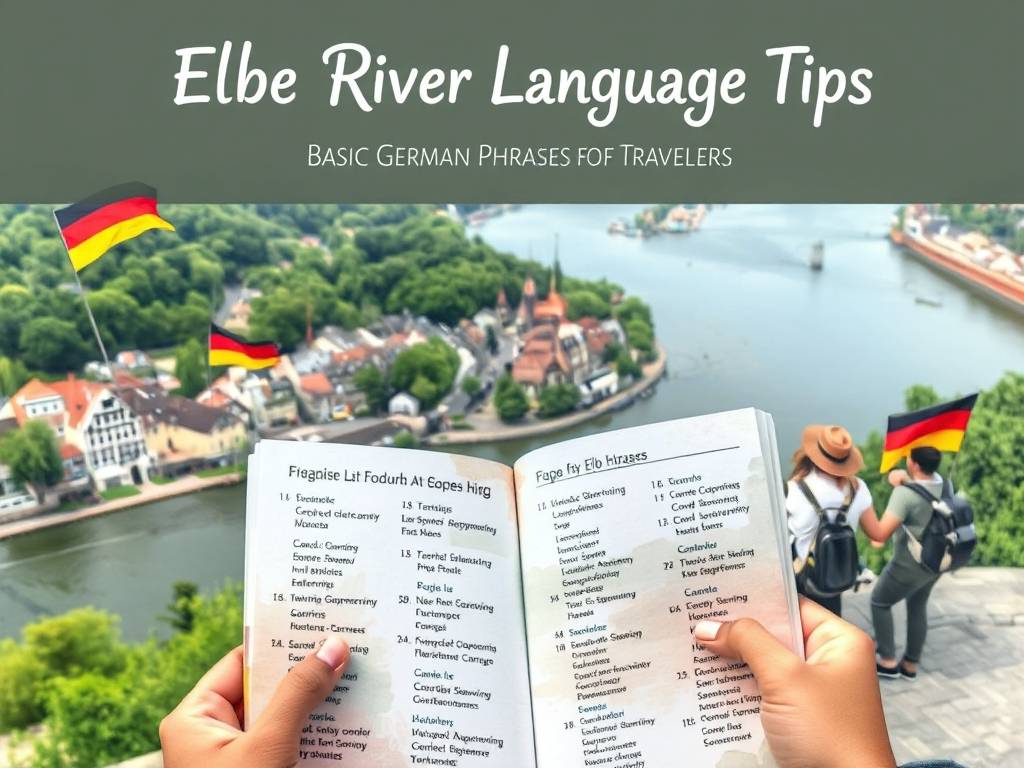
- Ich bin vegetarisch. (Ikh bin vege-tah-rish) - I am vegetarian.
- Ich habe eine Allergie gegen Nüsse. (Ikh hah-buh eye-nuh Aller-gie gay-gen Nüs-suh) - I have an allergy to nuts.
Finding Your Way and Shopping for Souvenirs
Whether you're exploring the Zwinger Palace or the Meissen porcelain shops, these phrases will help.
- Ich habe mich verlaufen. Können Sie mir helfen? (Ikh hah-buh mikh fair-lou-fen. Kern-nen zee meer hel-fen) - I am lost. Can you help me?
- Wo ist der Ausgang? (Voh ist dehr Ows-gahng) - Where is the exit?
- Können Sie das bitte aufschreiben? (Kern-nen zee dahs bit-tuh owf-shry-ben) - Can you please write that down? (A lifesaver for complicated directions).
When shopping for that perfect souvenir:
- Das ist zu teuer. (Dahs ist tsoo toy-er) - That is too expensive.
- Kann ich mit Karte zahlen? (Kahn ikh mit Kar-tuh tsah-len) - Can I pay with a card?
- Haben Sie das in einer anderen Farbe? (Hah-ben zee dahs in eye-ner an-der-en Far-buh) - Do you have this in another color?
- Ich schaue mich nur um. (Ikh shou-uh mikh noor oom) - I'm just looking around.
Handling Emergencies and Tricky Situations
We hope you never need these, but it's crucial to be prepared.
- Hilfe! (Hil-fuh) - Help!
- Rufen Sie einen Arzt! (Roo-fen zee eye-nen Artst) - Call a doctor!
- Polizei! (Poh-li-tsy) - Police!
- Ich habe meinen Pass / meine Handtasche verloren. (Ikh hah-buh my-nen Pass / my-nuh Hand-tah-shuh fair-loh-ren) - I have lost my passport / my handbag.
Numbers and Time: The Practical Backbone
- Numbers 1-10: eins, zwei, drei, vier, fünf, sechs, sieben, acht, neun, zehn.
- Heute (Hoy-tuh) - Today
- Morgen (Mor-gen) - Tomorrow
- Gestern (Ges-term) - Yesterday
A Final Word of Encouragement
Don't be afraid to make mistakes! Germans generally appreciate any effort you make to speak their language. Start your sentences with "Entschuldigung, sprechen Sie Englisch?" (Excuse me, do you speak English?) as a polite opener. Practice these phrases a little each day before your trip. Use a language app to get the pronunciation right.
Your journey along the Elbe River is about to be more than just a vacation; it will be a cultural immersion. By using these basic German phrases for travelers, you're not just asking for a ticket or ordering a meal; you're connecting with the heart of Saxony. You're opening doors to spontaneous conversations, getting helpful local tips for your Elbe River travel, and creating memories that are far richer. So pack your bags, bring your phrasebook (or this guide!), and get ready to say, "Guten Tag, Deutschland!"
Viel Spaß! (Have fun!)
相关文章
- Elbe River Accessibility: Tips for Travelers with Disabilities
- Elbe River Cultural Tours: Immerse in Local Traditions
- Elbe River Shopping Guide: Best Markets Near the River
- Elbe River Spa Retreats: Relax Along the Waterway
- Elbe River Golf Courses: Tee Off with River Views
- Elbe River Horseback Riding: Trails Near the Banks
- Elbe River Hot Air Balloon Rides: Aerial Views of the River
- Elbe River Paragliding: Adventure Sports Near the Water
- Elbe River Museum Nights: Special Events After Dark
- Elbe River Bookstores: Shops with River-Themed Reads
发表评论
评论列表
- 这篇文章还没有收到评论,赶紧来抢沙发吧~
